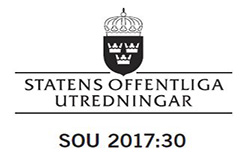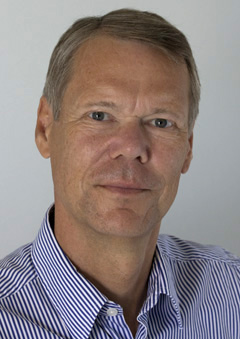 A month ago, the government inquiry on Swedish gambling regulation presented its report. Having now read the 1344-page report, my impression is very positive. It is likely that the proposed regulation will work well. It is proposed to come in force January 1, 2019.
A month ago, the government inquiry on Swedish gambling regulation presented its report. Having now read the 1344-page report, my impression is very positive. It is likely that the proposed regulation will work well. It is proposed to come in force January 1, 2019.
In broad outline, the Inquiry proposes a licensing system for online gambling: casino, sports- and horse betting, poker and bingo. However, land-based casinos (limited to four) and EGM:s (limited to 7000) will remain in a state monopoly, and the state and public benefit organizations will get exclusive rights to the lottery market. Online betting on horse racing and trotting will be open for all companies with a license. The state-owned Svenska Spel is proposed to be split up in two parts: a monopoly part (casinos, EGM:s and lotteries) and a license-holding part (which eventually might be sold off).
These proposals regarding license and monopoly parts of the market are of course not evidence based, as there is very little scientific evidence for the functionality across various dimensions of different regulatory systems. The proposals follow from the government’s assignment to the Inquiry, which takes into account Swedish gambling traditions and conventions, political opinions, and the extent of competition within sectors of the market. On this one may of course have views diverging from the Inquiry’s proposal.
The number of licenses for online gambling is proposed to be unlimited: all companies meeting the requirements will be given a license if they apply and pay the fee. The companies will have to pay 18% of gross gambling revenues in tax. The goal of the new regulation is that 90% of the market will belong to regulated companies.
It should be noted that the proposed regulation rests on framework legislation: the new Gambling Act. The Act is intended to be complemented by decrees and rules issued by the Gambling Authority or the government. Possible loopholes in the legislation can thus be closed when needed.
The Inquiry proposes a broad spectrum of measures to minimize problem gambling. I doubt there is any country with a licensing system where the gambling regulation includes so many and far-reaching measures. Here are some examples.
Online gambling: all players must set limits for their gambling (money and time). Gambling companies are required to monitor and analyze each player’s gambling behavior. In cases of risky behavior, they shall proactively alert the player (although it is not specified how). All interactive online games must have a “panic button”, which immediately excludes the player for 24 hours. All companies must offer their customers a self-test of gambling behavior.
The Swedish Gambling Authority will manage a central register for self-exclusion, covering licensed gambling companies as well as companies and organizations with exclusive rights. Thus, self-exclusion will cover online gambling, land-based casinos, EGMs, lotteries (except instant lottery tickets) and betting – all these are forms of gambling in which the gambler needs to be registered to play.
Licensed companies will be required to report monthly and quarterly to the Gambling Authority a great number of things regarding their players and their possible risky gambling behavior. This information will allow the Authority to constantly monitor the risk of problem gambling in various forms of gambling.
At the gambling authority, a specific task group will monitor the gambling market and risk of problem gambling. The group will use not only the aforementioned data from gambling companies but also information from prevalence surveys, the national helpline for problem gambling, and other relevant sources.
New stricter rules for marketing are proposed. For example, gambling companies may not send marketing messages to self-excluded players. Bonuses may only be marketed in a fully transparent way.
All gambling companies must educate their employees about the risks of gambling. Personnel responsible for proactively contacting customers who may be problem gamblers must have special training.
The Inquiry suggests that unlicensed companies will be subject to payment blocking. However, there will be no IP-blocking of their websites. Instead, internet providers are required to display a warning message when such sites are accessed; the individual may then choose to proceed to the unlicensed site or not.
There are many other interesting things to read in the Inquiry’s report. Parts of it are good summaries of the state of knowledge about gambling markets and aspects of problem gambling. The Inquiry has, as far as possible and within the frame set by its assignment, based its considerations on evidence from gambling studies. Three gambling researchers were part of the Inquiry’s reference group: Jakob Jonsson, Håkan Wall and myself.
What is missing from the report? The report covers virtually everything included in the assignment (and numerous additional issues), so there is actually little to complain about. However, I would have preferred physical EGM:s to be regulated more strictly, as they are in Norway (the Inquiry writes in the report that it had not time enough to consider this). It had also been good with some ideas of how gambling research should be organized in Sweden. There is a need not only for basic research but also studies of particular issues important for gambling regulation, issues which are not likely to receive funding from science councils. Currently it is unclear how such studies can be financed.
Before the parliament decides on re-regulating the gambling market, details in the Inquiry’s proposal may change as it will be scrutinized in legal, stakeholder and public consultations.
– The report is available here (in Swedish with an English summary): http://www.regeringen.se/rattsdokument/statens-offentliga-utredningar/2017/03/sou-201730/
– A gambling research blog post about the Inquiry (in Swedish): http://spelforskning.se/2017/04/03/1344-sidor-senare-tankar-om-spelutredningen/
– A magazine article commenting on this post (in Swedish) http://www.thegamblermagazine.se/2017/05/18/spelforskaren-per-binde-om-spelutredningen/

